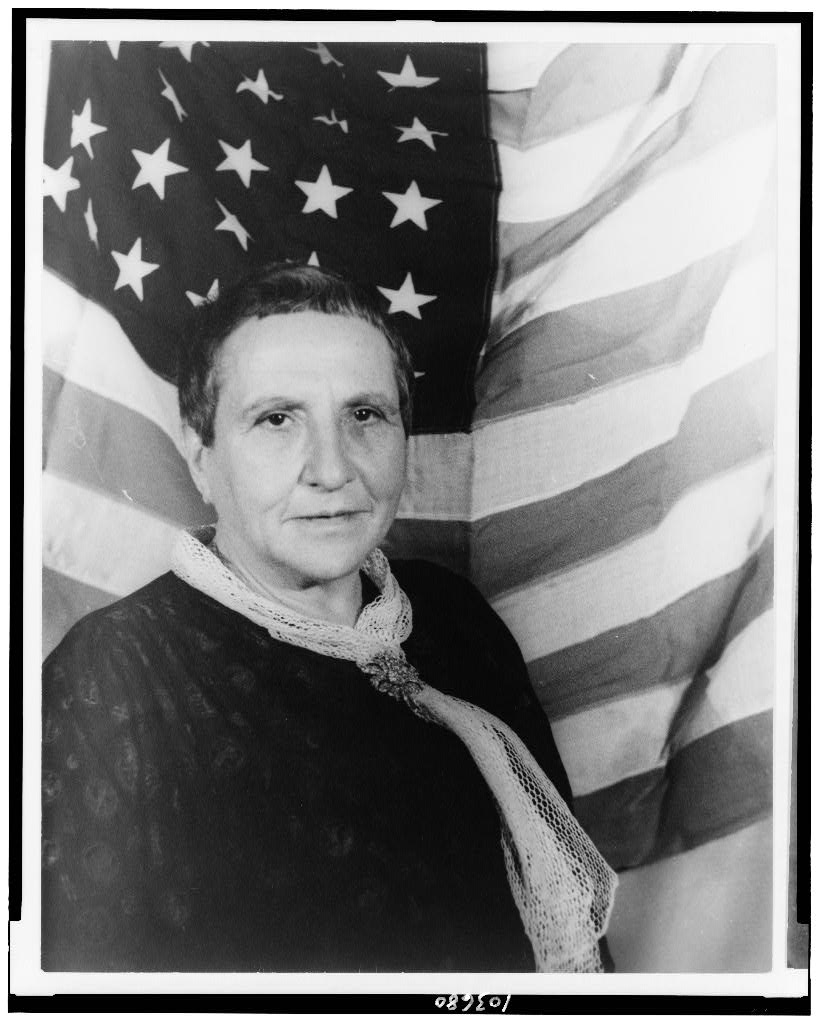
A friend passes these on:
“And what does a comma do, a comma does nothing but make easy a thing that if you like it enough is easy enough without the comma. A long complicated sentence should force itself upon you, make you know yourself knowing it and the comma, well at the most a comma is a poor period that lets you stop and take a breath but if you want to take a breath you ought to know yourself that you want to take a breath. It is not like stopping altogether has something to do with going on, but taking a breath well you are always taking a breath and why emphasize one breath rather than another breath. Anyway that is the way I felt about it and I felt that about it very very strongly. And so I almost never used a comma. The longer, the more complicated the sentence the greater the number of the same kinds of words I had following one after another, the more the very more I had of them the more I felt the passionate need of their taking care of themselves by themselves and not helping them, and thereby enfeebling them by putting in a comma.
“So that is the way I felt about punctuation in prose, in poetry it is a little different but more so …”
— Gertrude Stein
And Oscar Wilde has this to say on the subject:
“I have spent most of the day putting in a comma and the rest of the day taking it out.”

I was irked at a comma in the Oregonian yesterday. Or at the lazy copy editor who didn’t take it out. (Or, horrors, maybe he put it in?) It was in a reference to Waldo Lake. The O called it the “second-largest, naturally formed lake” in Oregon. What’s really funny is that the online version has wildly different punctuation: “second largest naturally-formed lake.” No comma, no hyphen between second and largest (there should be one, I think) and then a hyphen between naturally and formed (where there needn’t be one).
Has anyone seen Mike Brock lately? (Do you remember him? He was fully capable of coming up with two different wrong solutions to a copy conundrum like that one.)